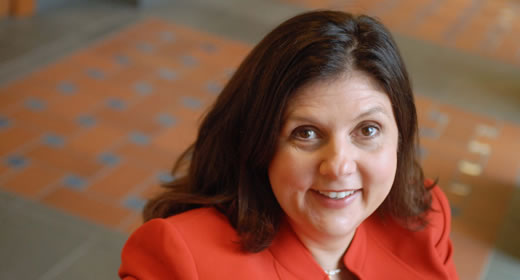
Recent economic conversations have attempted to forecast the widely-anticipated next recession, but when are these commentators correct, and when are they crying wolf? Politico Money's Ben White sat down with Professor Betsey Stevenson to dissect such discussions for the January 16, 2019, podcast episode “Economic expansions don’t just die. They get murdered.”
White wasted no time asking Stevenson what two signals people should focus on when predicting a recession, but Stevenson replied by clarifying that people should “look at a broad range of indicators that can paint a picture of whether the economy is moving in the right direction,” going on to say there are at least 10 indicators to track, if not more. “Different indicators give us different pieces of info. It’s like having different puzzle pieces, and when we put all the puzzle pieces together we get a better pic of where the economy is at and where it’s likely to be going,” Stevenson reiterated. She reassured listeners that the recent years of a growing economy won’t lead to an inevitable downturn, saying “expansions do not die of old age.” Instead, she chooses to look at trends overall, domestic and international, to get a sense of both economic reality and perception.
When discussing labor trends combined with the Fed’s gains, Stevenson said to look at them as a whole. “When we’re operating above potential, what it means is that there are a lot of people who are burning at both ends. People are running extra shifts, using equipment without doing repairs they need to—they’re not taking the time that they need to, say, upgrade computer equipment because everyone is working too hard to take that break. That can only go on for so long, and that’s when the Fed starts to raise rates and encourage people to get back to a normal pace.” White went on to ask how the Trump administration’s tax cuts impacted the economy, with Stevenson replying that “...the jury’s still out. I don’t have a lot of faith that we’re going to see big increases in growth coming out of these tax cuts.”
A former member of the White House Council of Economic Advisors, Betsey Stevenson is an associate professor of public policy at the Ford School. Professor Stevenson is also a research associate with the National Bureau of Economic Research and a fellow of the Ifo Institute for Economic Research in Munich. Stevenson served as the chief economist for the Department of Labor from 2010 to 2011 and currently serves on the board of directors of the American Law and Economics Association.